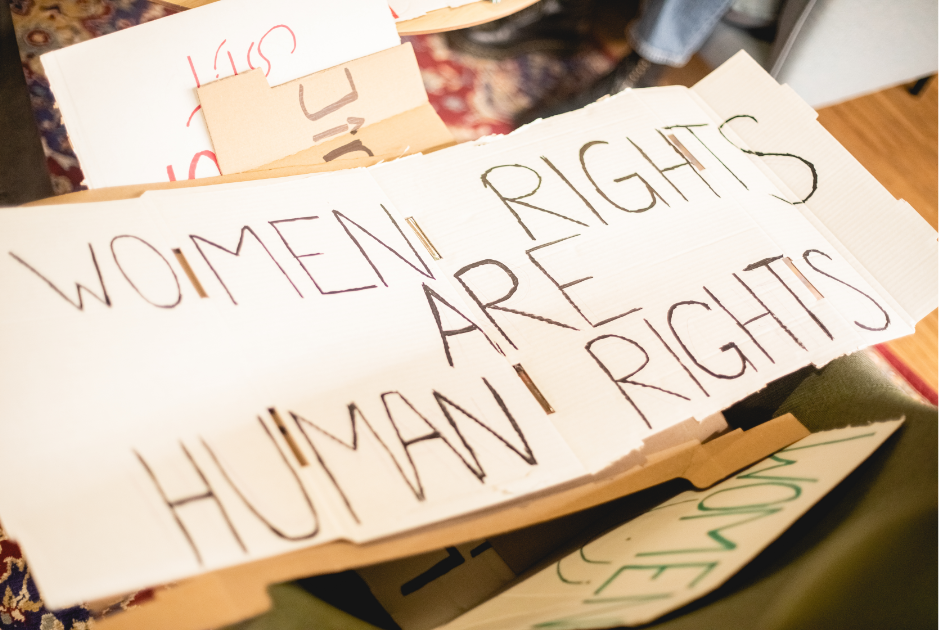Aziz Ansari's new show is amazing. But the stories he's sharing to promote it are just as good.
All jokes aside, he's doing what he can to make Hollywood a more diverse place.
Currently out promoting his new Netflix show, "Master of None," Aziz Ansari is sharing some tough truths about diversity.
The show (which everyone needs to spend this weekend binge-watching, OK?) follows Dev, a 30-year-old actor played by Ansari. The show touches on issues of race, gender, sexuality, and the very human element of unconscious bias that plays into everyday life.
One of those topics, diversity in Hollywood, hits really close to home for Ansari, and he's using this promotional tour to share what he's observed. Ansari recently penned a piece for The New York Times in which he talked about what it meant to him as a kid to feel represented by characters on TV and in film and why it's important to have diverse entertainment.
Ansari's observations are spot-on. Hollywood isn't just white. It's disproportionately white.
During the 2012-2013 TV season, racial minorities made up just 6.5% of lead roles. That's pretty white. That's really white. That's unrealistically, disproportionately white; racial minorities make up nearly 40% of the U.S. population.
But what's the big deal, right? If minorities want roles, why don't they start their own shows, movies, and whatnot? Want more diversity? Make it more diverse! Right?
Well, as Ansari points out, it's way more complicated than that.
"I wouldn't be in the position to do any of this, and neither would ['Master of None' co-creator] Alan [Yang], unless some straight white guy, in this case Mike Schur, had given us jobs on 'Parks and Recreation,'" writes Ansari in his New York Times article. "Without that opportunity, we wouldn't have developed the experience necessary to tell our stories. So if you're a straight white guy, do the industry a solid, and give minorities a second look."
Ansari also stopped by "The Late Show with Stephen Colbert," where he poked fun at the sad state of diversity in late-night talk shows.
Sitting next to Colbert, Ansari joked that while he was on camera, the show was 50% diverse (a victory!). "You are the first late-night host from South Carolina," he congratulated Colbert. "And the bajillionth white guy."
There's no shortage of articles and videos and posts on social media criticizing late night for being so devoid of people of color (especially women of color). Check out W. Kamau Bell's "The Unbearable Whiteness of Late Night" or Vox's statistic-heavy look at the topic for a more thorough breakdown on what's up.
But maybe the best look at late night's lack of diversity is this image from a Vanity Fair article about the "titans of late-night television."As it turns out, late-night TV is home to more people named James (looking at you, Fallon, Kimmel, and Corden) than people of color (or women).

But why should we want more diversity? Believe it or not, it can actually make you a better person.
Studies have found that when people see representation of a group they belong to on TV or in the movies, it affects how they view themselves.
Additionally, kids should grow up seeing themselves reflected in a variety of characters because data shows that it's good not just for them but for all kids to understand that skin color is not associated with any one type of character.
So yes, even white people benefit from increased diversity. True story!
As more and more people acknowledge that more racial diversity would benefit Hollywood, what can we do?
It's easy to feel pretty powerless in these situations, right? I'm not a TV executive. Odds are you're not a TV executive (unless you are, in which — bam! — you know what to do here). We don't make casting decisions, so what can we do to help?
The truth is that audiences want and have been asking for more diversity. So what more can you do? Support filmmakers who are people of color, boost their voices on social media, or if you happen to be unbelievably wealthy like George Lucas, fund programs to boost diversity in Hollywood. Really, just do anything but brush off the concerns of folks like Ansari.





 What was I doing again?
What was I doing again? A space waitress at work.
A space waitress at work.  Waking Up Funeral GIF
Waking Up Funeral GIF Rihanna Nails GIF
Rihanna Nails GIF Yoga pants.Image via Canva.
Yoga pants.Image via Canva. Our natural lashes are nice just the way they are!
Our natural lashes are nice just the way they are! One step forward, many steps back. Image via Canva.
One step forward, many steps back. Image via Canva.  Homelessness is especially rampant on the West Coast.Image via Canva
Homelessness is especially rampant on the West Coast.Image via Canva